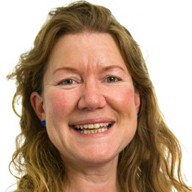Part-time GP and local mental health lead Dr Emma Tiffin was determined to improve the experiences and outcomes for mental health patients in primary and crisis care. Her tireless work and passion led to her winning ‘Healthcare Leader of the Year’ and being shortlisted for ‘GP of the Year’ at the prestigious General Practice Awards. Here’s how she did it.

Profile: Dr Emma Tiffin
What’s your role? Peterborough GP, Cambridgeshire and Peterborough STP and CCG Clinical Mental Health Lead, BBC Radio Cambridgeshire Resident GP
How long have you been a GP? 20 years
How would you describe your practice? Hugely deprived, with 70% of patients not speaking English as a first language. We have a large number of asylum seekers on our patient list and many of our patients live in poverty
What gets you up in the morning?
The NHS – I am absolutely passionate about all elements of my work and being a doctor – the theme for my 50th birthday party was ‘The NHS’, which sums up my number one love.
What problems was the area facing?
As a passionate advocate for mental health in Peterborough – an area of deprivation and health inequality – I wanted to tackle some of the problems in mental health service provision. Pathways and access to both primary mental health care and crisis care were inadequate, patients would often end up in secondary care unnecessarily, and local commissioners had historically not adopted a co-production approach, meaning patients’ voices were not taken into account in the design and provision of services. Ultimately, patient experience suffered and treatment outcomes were poor.
What did you do?
I led two major projects that have had a direct impact on local patients. The First Response Service (FRS) is a community-based mental health crisis response service, which triages NHS 111 callers in the area who need dedicated mental health support.
Patients are given the option of advice, phone escalation and signposting; referral to a place of safety; or a face-to-face urgent assessment. As part of the project, I chaired a local delivery group, provided clinical leadership and ensured the CCG commissioned a patient engagement forum called Service Users Network.
The second project, Enhanced Primary Care for Mental Health – known locally as PRISM – is a community-based service that allows the majority of mental health patients to be supported in primary care.
As part of PRISM, core mental health multidisciplinary teams are aligned to all 105 GP practices in the area, with additional aligned voluntary sector capacity and social care functions across the CCG and local authorities.
What were the challenges?
Funding was an issue, but I oversaw a successful application for the national Urgent and Emergency Care Vanguard Transformation Fund. It can be a difficult balance to combine my clinical practice with non-clinical commissioning work, but doing so is key to the delivery of the FRS and PRISM services. Challenging stigma around mental illness is a crucial part of achieving buy-in from patients and stakeholders, and I actively do this through my role as resident GP on my regular Friday afternoon slot on BBC Radio Cambridgeshire.
What improvements did you see?
Both projects are delivering positive PROMs (patient-reported outcome measures) and PREMS (patient-reported experience measures). The FRS has delivered a one-to-one return on investment in the first six months and has seen:
- ED attendance for mental health fall by 19%
- admissions to acute trusts from ED fall by 20%
- ambulance conveyances fall by 11%
- NHS 111 mental health calls fall by 45%
- out-of-hours GP appointments fall by 39%
- number of overdoses reported by EDs fall by 16% .
Meanwhile, PRISM has reduced the time to assessment in secondary care from 59.6 days to 18.7 days in pilot surgeries, cut the number of referrals to secondary care (thereby preserving capacity in secondary care and specialist services), and led to positive GP feedback on consultant involvement. In one case, a patient who had a mental health relapse was able to be reviewed within 24 hours, where the wait would previously have been much longer.
The next phase of the local work will result in reshaping secondary care services to have enough capacity to provide targeted and effective specialist mental health treatment.
What colleagues say
Caroline Meiser-Stedman, consultant psychiatrist and FRS service manager: ‘On a personal level, as a doctor involved in service development, Emma has been an inspiration and a massive support to me, and is a real role model of excellence in medical leadership.’
Lois Sidney, Service Users Network: ‘Emma doesn’t accept problems, she finds solutions. She is hugely encouraging and inspirational to those around her, with a knowledge and interest in the field of mental health that is second to none. She is tireless in her promotion of the importance of understanding and talking about mental health, but what really makes Emma outstanding is her compassion and desire to get things right for service users.’
Chess Denman, CPFT Clinical Director: ‘Emma is without doubt the most indefatigable, incorrigible and unstoppable commissioner of mental health care I have ever known. She has put her heart and soul into passionate advocacy for mental health care.
‘This has borne fruit both at the commissioning end in the form of at least £10 million for local services, and at the provider end in terms of major innovative developments in mental health provision.
‘Without Emma the quality of mental health care in Cambridge and Peterborough would be immeasurably worse.’

















